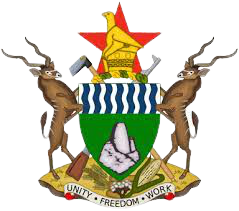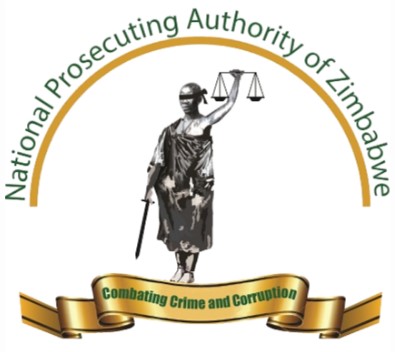About Us

ESTABLISHMENT AND THE MANDATE TO FIGHT CRIME AND CORRUPTION
The National Prosecuting Authority is one of two institutions that are mandated to fight corruption in Zimbabwe. The establishment and functions of the National Prosecuting Authority are provided for in terms of section 258 of the Constitution of Zimbabwe. The National Prosecuting Authority is responsible for instituting and undertaking criminal prosecutions on behalf of the State and discharging any functions that are necessary or incidental to such prosecutions.

OUR VISION
A just, secure and peaceful society by 2030
OUR MISSION
To uphold the rule of law through efficient prosecution of crime and corruption without fear, favour, prejudice or bias
OUR VALUES AND ETHOS
Justice, Fortitude, Service, Accountability, Integrity, Professionalism

The National Prosecuting Authority is one of two institutions that are mandated to fight corruption in Zimbabwe. In terms of chapter 13 of the Constitution of Zimbabwe, The Zimbabwe Anti-Corruption Commission and The National Prosecuting Authority are the institutions mandated to fight corruption. The establishment and functions of The National Prosecuting Authority are provided for in terms of section 258 of the Constitution of Zimbabwe. In terms of section 258, The National Prosecuting Authority is responsible for instituting and undertaking criminal prosecutions on behalf of the State and discharging any functions that are necessary or incidental to such prosecutions.
Section 259 of the Constitution provides for the establishment of the office of the Prosecutor-General and other officers. The Prosecutor-General is the head of the National Prosecuting Authority and is appointed by the President. The Prosecutor-General must be a person qualified for appointment as a judge of the Supreme Court and his or her term of office is a period of six years which is renewable for another six years. The Prosecutor-General must take the oath of office, before the President or a person authorised by the President before taking office. The provisions relating to the removal of a judge from office apply to the removal of the Prosecutor-General from office.
The Prosecutor General bears the onus to institute and undertake criminal prosecutions on behalf of the State through the National Prosecuting Authority. The Prosecutors prosecute in the name of the Prosecutor General and must discharge any functions that are necessary or incidental to such prosecutions. Section 259 of the Constitution provides that The Prosecutor-General may direct the Commissioner-General of Police to investigate and report to him or her on anything which, in the Prosecutor-General’s opinion, relates to an offence or alleged or suspected offence, and the Commissioner-General of Police must comply with that direction. Section 260 provides that Prosecutor-General is independent and is not subject to the direction or control of anyone and must exercise his or her functions impartially and without fear, favour, prejudice or bias.
The Prosecutor-General must formulate and publicly disclose to the general principles by which he or she decides whether and how to institute and conduct criminal proceedings. This is in terms of section 260 of the Constitution. The National Prosecuting Authority Board assists the Prosecutor-General to manage the affairs of the National Prosecuting Authority. The Board is responsible for the employment of Prosecutors and any other officers to assist the Prosecutor General in the exercise of his or her functions. The Prosecutors and officers so employed must be independent and impartial and subject only to the law and to the direction and control of the Prosecutor-General in order to guarantee the efficient performance and well-being of the National Prosecuting Authority.
Section 261 of Constitution enjoins The Prosecutor-General and all the officers of the National Prosecuting Authority to act in accordance with this Constitution and the law. No officer of the National Prosecuting Authority is allowed to act in a partisan manner in the exercise of his or her functions. Furthermore, no Prosecutor or employee of the National Prosecuting Authority is allowed to further the interests of any political party or cause; prejudice the lawful interests of any political party or cause; or violate the fundamental rights or freedoms of any person. Prosecutors and employees of the National Prosecuting Authority must not be active members or office bearers of any political party or organisation. They must maintain neutrality in the discharge of their functions at all times.
The National Prosecuting Authority’s team of dedicated and professional Prosecutors is always ready to deliver world class service without fear, favour, bias or prejudice. The Prosecutors are supported by the Administration staff who strive to ensure that Prosecution services run smoothly, efficiently and professionally.
The Prosecutor-General must report to Parliament annually in terms of section 262 of the Constitution. The annual report is submitted through the Minister of Justice, Legal and Parliamentary Affairs. The annual report is a detailed summary of the operations and activities of the National Prosecuting Authority.
Every employee understands that the National Prosecuting Authority is at the centre of the criminal justice delivery system, therefore, they all have a duty to act impartially, with integrity and in the interests of justice at all times. Every employee is thus obligated to apply the highest professional standards and treat everyone fairly and with respect in order to build a safer and corruption free Zimbabwe as we strive towards a middle – income economy for all by 2030.
All Prosecution services are free. Members of the public must not pay for prosecution services. Any money or consideration that is paid to a Prosecutor or an employee of the National Prosecuting Authority for prosecution services is criminal and amounts to corruption.
Report corruption and criminal conduct to the Zimbabwe Police Service, The Zimbabwe Anti- Corruption Commission or The Prosecutor General through the NPA Inspectorate on 024-2780950 | 024-2780758| 024-2780836 | 024-2780450 or whatsapp on 0791390920.

